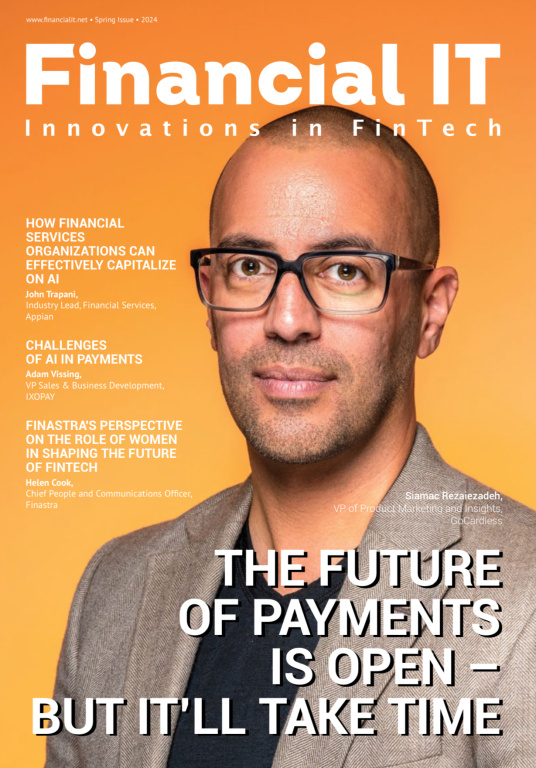Exclusive Interview with Innovate Finance for Financial IT
- 05.04.2024 -- 01:14 pm
- Roberto Napolitano, Director of Marketing and Communications, Innovate Finance
1. Can you highlight some of the key themes and topics that will be covered at this year’s IFGS, and how they reflect the current trends in the fintech industry? The Innovate Finance Global Summit (IFGS) returns on the 15th and 16th of April to the historic Guildhall, right in the heart of the City of London. This year we celebrate...
Q&A with Anti-money Laundering Expert
- 05.04.2024 -- 12:20 pm
- Bion Behdin, CRO and co-founder, First AML
According to the United Nations, 2-5% of global GDP is laundered each year, amounting to $800 billion - $2 trillion in US dollars. Of course, due to the clandestine nature of money laundering, the extent of it can be considered fairly unclear. But the problem with it is clear. Money laundering facilitates the flow of money from criminal...
What is Next in Payments Authentication?
- 27.03.2024 -- 12:48 pm
- Olympe Leflambe, General Counsel, Legal and Compliance, Mangopay
Strong Customer Authentication (SCA) is a requirement of the second Payment Services Directive (PSD2) designed to force EU payment service providers to improve authentication processes. Six years after it became law, Olympe Leflambe, General Counsel, Legal and Compliance at Mangopay discusses the state of authentication in 2024. 1. What are...
Joint Interview on Tap to Pay
- 20.03.2024 -- 09:06 am
- Brad Hyett, CEO at phos &, Matt Sloan, Vice President, Discover Global Network Business Development EMEA
Joint written Q&A with Brad Hyett, CEO of UK-based SoftPoS business phos and Matt Sloan, Vice President of Discover Global Network Business Development EMEA. Brad was one of the first payments leaders to recognize the potential of SoftPoS technology and has established phos as the market leader in Europe. Matt is currently driving...
The Future of Open Banking: A Conversation with Andrew Boyajian, VP of Products for Payments and CX at Tink
- 07.03.2024 -- 05:22 pm
- Andrew Boyajian, VP of Product for Payments & CX, Tink
With exciting regulation and momentum in the realm of Open Banking, it’s vital to understand the coming opportunities and challenges in the industry. Andrew Boyajian from Tink joins us to illuminate the history of Open Banking regulation and where it might go next. Thank you for joining me today. Why don't you introduce yourself and tell...
Q&A: How Instant Payments Can Empower Merchants to Enhance the Consumer’s Payment Experience
- 09.02.2024 -- 01:04 pm
- Virginie Melaine-Christensen, Country Manager France , Adyen
Instant payments allow users to transfer funds in a matter of seconds. The convenience and transparency that this allows businesses to provide have led to growing adoption as users demand a seamless payment experience. 75% of small and medium-sized businesses that use a platform or marketplace to run their business have voiced their desire...
Fintech for HR: A Conversation with Sabrina Castiglione, COO of Pento, a UK Payroll Solution
- 30.01.2024 -- 10:58 am
- Sabrina Castiglione, COO, Pento
As financial services are embedded in more and more digital environments, the ways in which HR teams handle payroll management continue to evolve. Pento has differentiated itself in the UK payroll software market by offering automated processes, flexible scheduling, and integrations with several types of third-party platforms. In this...
Q&A: How EPI is Uniting Europe’s Instant Payments Ecosystem
- 08.01.2024 -- 10:42 am
- Arnaud Crouzet, Vice President, Fime Consulting
Our world is increasingly connected, and this brings with it an increased demand for digital solutions. This includes payments, with consumers now expecting them to be faster, more convenient, and more secure than ever. Instant payments promise not only to meet these expectations but also to surpass the capabilities of any current method of payment. It...


















